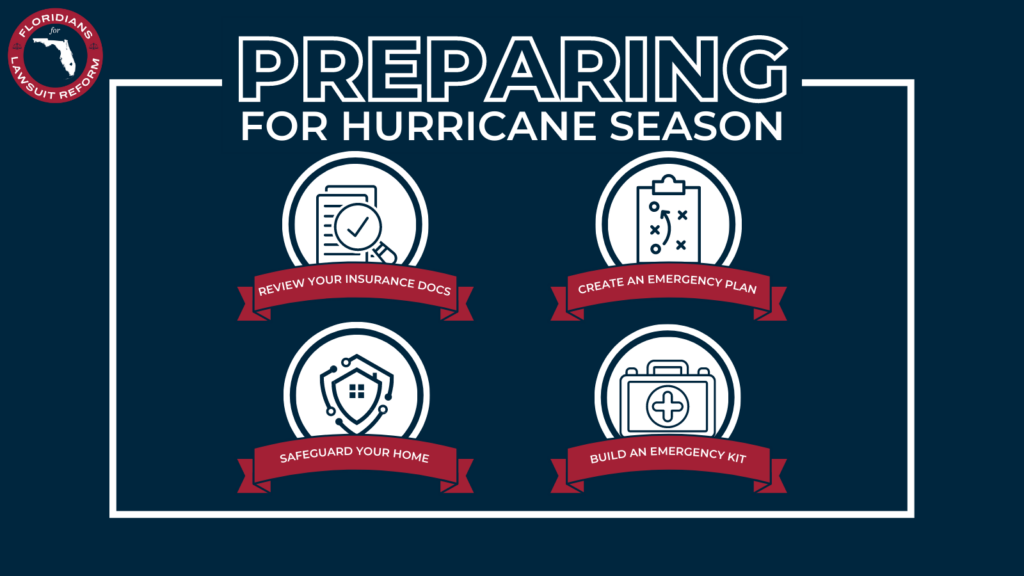
Published: 2:18 PM EDT April 12, 2024
Updated: 5:23 PM EDT April 12, 2024
ST. PETERSBURG, Fla. — We are 50 days away from what’s expected to be an active hurricane season, and Florida officials want you to start preparing now.
The Florida Division of Emergency Management said taking steps to get your home, family and businesses ready in advance will pay off when you don’t have to scram for supplies at stores with empty shelves or wait in lengthy lines to get gas. The agency also makes sure local leaders have everything in place to help the communities they serve should a hurricane impact them.
“During the next 50 days, I will be traveling across the state and meeting with regional coordinators and emergency management personnel to make sure every county is ready for the season ahead,” FDEM Executive Director Kevin Guthrie said in a statement.
Hurricane season for Florida is from June 1 to Nov. 30, with activity historically peaking around September.
Forecasting experts have predicted more storms than usual to form this year.
An initial outlook from researchers at Colorado State University called for more hurricanes than their forecast has ever issued, according to Dr. Phil Klotzbach, one of the scientists on the team.
Here’s what FDEM said you can start doing now to prepare and save yourself the stress of cramming that to-do list last minute:
Know your evacuation zone and the resiliency of your home
FDEM has an interactive map to help determine if you live in an evacuation zone, and if so, what that zone is. You can find that here. It’s important to remember what zone you are in so there is no time to waste once you’re ordered to evacuate. It can also be an indication of how vulnerable your home is to hurricane damage.
Other things to consider are whether you live in a low-lying, flood-prone area and if you live in a mobile home, as this could leave you at a greater risk.
Officials also suggest you examine your home for anything that might hinder its ability to withstand strong winds and heavy rain, such as leaks in your roof or a damaged door seal.
Have multiple ways to get weather alerts
You can download the free 10 Tampa Bay app from the Apple App Store and Google Play Store to get alerts sent straight to your phone. You can also stream live weather coverage from 10 Tampa Bay meteorologists through the app, on 10TampaBay.com and on 10 Tampa Bay+ — a free download for your favorite streaming device, such as Roku.
Leaders with the emergency management department encourage Florida residents to get a battery-operated or hand-crank weather radio to make sure you can get the latest updates from the National Weather Service, even when power is out or cell towers are damaged.
Build a disaster supply kit
If a hurricane comes through before you’ve been able to put together a kit, finding resources in the aftermath can be much more difficult. This impact could be exaggerated if you lose access to running water or power to keep refrigerators running and food fresh.
FDEM suggests that each household have enough “essential supplies” to last every family member — and yes, that means pets, too — for at least one week.
The Florida legislature included two tax holidays for disaster preparedness in the 2024 state budget. The proposal was passed by both the state House and Senate, but Gov. Ron DeSantis had not yet signed it as of April 12. While the governor has the power to veto specific funding provisions of the budget, he did approve the same tax holiday in 2023.
If signed, Florida taxpayers would not pay any taxes on supplies needed to get ready for hurricane season, such as:
- Flashlights and lanterns costing $40 or less
- Reusable ice costing $20 or less
- Radios costing $50 or less
- Tarps and ground anchors or tie-down kits costing $100 or less
- Coolers and portable power banks costing $60 or less
- Batteries and fuel tanks costing $50 or less
- Smoke detectors, fire extinguishers, and carbon monoxide detectors costing $70 or less
- Generators costing $3,000 or less
The first tax holiday would run from the start of hurricane season, June 1, through June 14. The second tax holiday would be from Aug. 24 to Sept. 6, when activity typically peaks.
You can find more information on protecting yourself during hurricane season in our series “Hurricane Hacks,” which you can find here.
